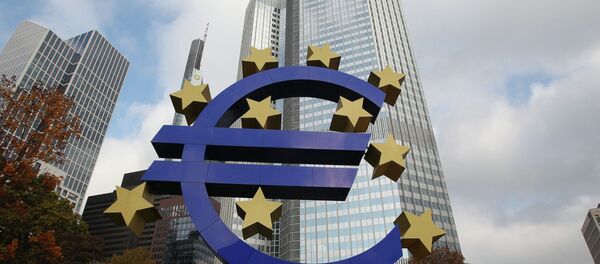"This has been accompanied by a marked decline in public trust at a time when the ECB has been granted extensive new powers to supervise major European banks," the report says.
The report comes at turbulent time for the Eurozone countries, with Greece struggling to meet the terms of its third bailout, amid calls to leave the Eurozone, and Italy, Spain and Portugal all failing to remain within strict debt and deficit targets.
"While the ECB has saved the single currency more than once, the absence of a Eurozone finance ministry as counterpart to the ECB means that the Bank has had to stretch its mandate to breaking point," said Leo Hoffmann-Axthelm, Research and Advocacy Coordinator at Transparency International EU.
Benoît Cœuré agrees with our @TI_EU recommendation to publish votes in #ECB Gov Council. More asks here: https://t.co/EN4ZbS3wZ1 #deepenEMU
— Leo Hoffmann-Axthelm (@leo_axt) 28 March 2017
ECB welcomes dialogue with NGOs on transparency https://t.co/722EVq29eb
— ECB (@ecb) March 27, 2017
"If the euro is to survive the next crisis, then EU member states need to stop hiding behind the technocrats at the ECB, overcome political inertia and get serious about reforming the eurozone," said Hoffmann-Axthelm.
For the €uro to survive the next crisis, EU politicians need to stop hiding behind @ecb & get serious about reform: https://t.co/L1zsu9cHVp pic.twitter.com/7gEXvKyCt0
— Transparency Int. EU (@TI_EU) 28 March 2017
Greek Secrecy
The report found that preserving the ECB's independence limits its accountability to citizens, and recommends that the bank should compensate this by increasing its transparency. The ECB should take immediate steps, such as automatically publishing its decisions and opinions and being more open about the political choices it faces, rather than insisting its decisions are purely technical.
At the height of the Greece crisis in 2015, the ECB repeatedly limited the ceiling on Emergency Liquidity Assistance for the country's banks without publicly announcing it. The ECB's discretionary powers allowed it to put pressure on Greek banks while negotiating bailout reforms with the Greek government as part of the Troika of international creditors.
Important paper by Transparency Int'l EU [@TI_EU]: 'Independence & accountability of the European Central Bank' https://t.co/BMoRBt95wk #ECB pic.twitter.com/dEaKY7yFmU
— Yannis Koutsomitis (@YanniKouts) 28 March 2017
Similar dynamics could play out in the upcoming negotiations with Greece, and with the current recapitalization of Italian bank Monte dei Paschi di Siena, which threatens the Eurozone's current fragile stability, according to the group.
"Clearly decisions which affect the fate of whole economies should have some kind of democratic oversight. The ECB should not be in a position to pull the plug on a country's euro membership, a decision ultimately down to democratically elected politicians", said Hoffmann-Axthelm.




